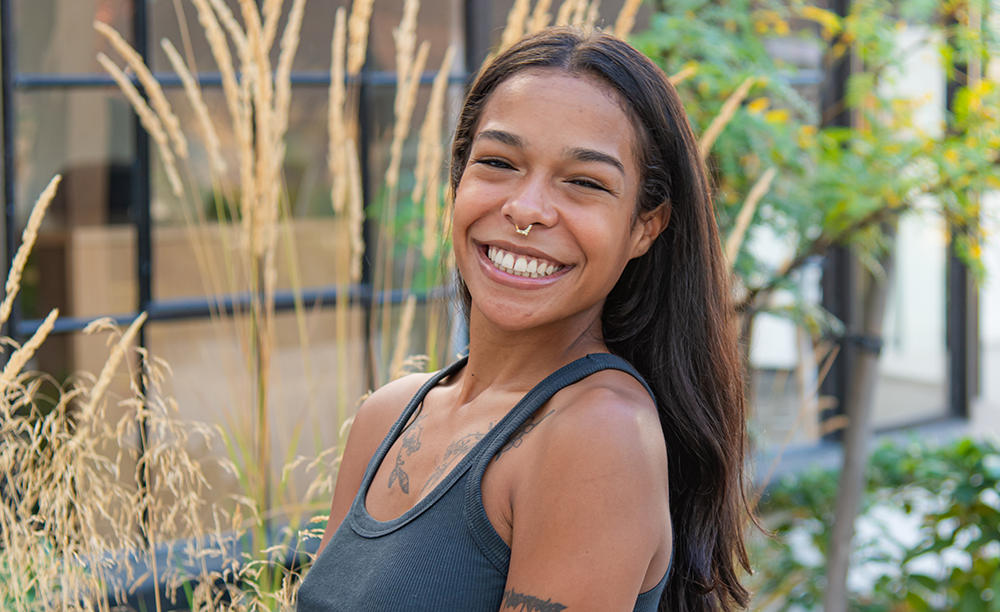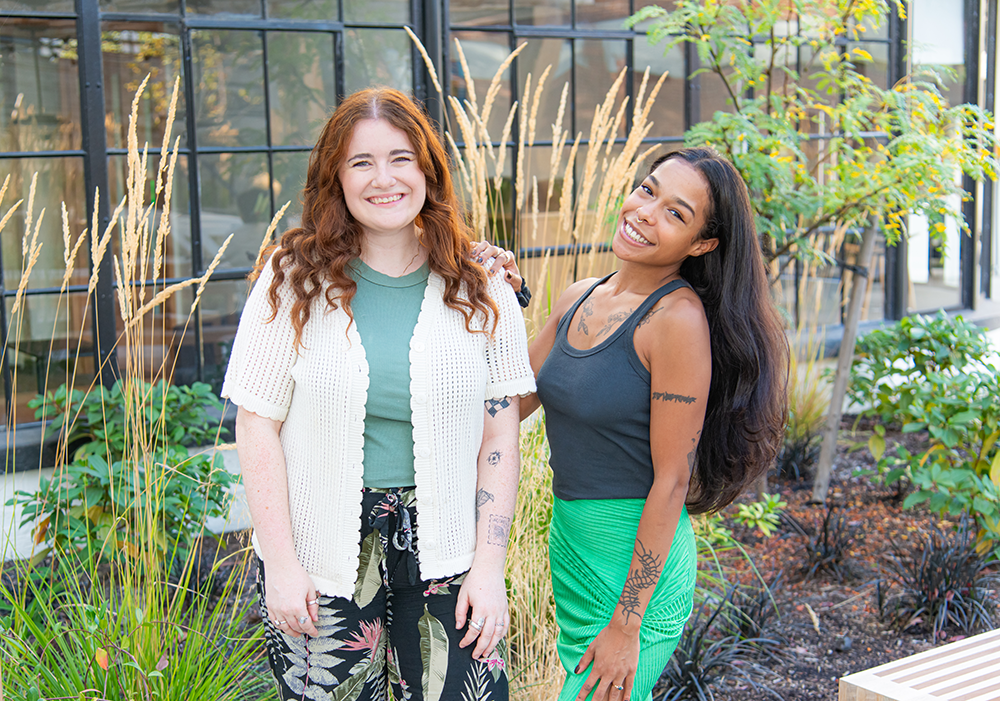Support, Strength, and Motherhood: Marlia’s Path to a Better Life
Young women who transition out of foster care are more likely to experience pregnancy than their peers. According to the National Foster Youth Institute, seven out of 10 girls who age out of care will become pregnant by their 21st birthday. Like all young adults, those who have experienced foster care have huge potential but without support, they could struggle through childhood adversity in a critical time to adulthood.
Marlia was raised in a middle-class home while in kinship care with her aunt and uncle. But once the age of 14 hit, an incident in the home forced her to enter child welfare services.
“Up until then my life was normal,” she said.
From there, Marlia bounced around from foster care placements to residential programs until she turned 18.
“Since I was 14, people were telling me what I should do but still expected me to act like an adult,” she said. “I get to make the decisions now instead of others making them for me.”
However, journeying out into the adult world without support can be incredibly challenging for young adults like Marlia with unexpected twists and turns along the way.
Obtaining a GED and finding a job were most important to Marlia. A caseworker initially introduced her to the Youth Villages Independent Living Program (ILP), a state-sponsored program geared toward youth aging out of the foster care system.
At 18, Marlia first met her specialist, Emily. Determined and goal orientated, Marlia wanted to get down to the business of getting all the adult things figured out from furnishing her first apartment, budgeting and even giving back to the Portland community through volunteer work. Due to a new job opportunity, Marlia moved away from Oregon but soon found out she would be a mother.

“I always knew I wanted to be a mom,” Marlia said. “But I was pretty much by myself (support-wise) the entire time.”
This is when ILP can be integral in providing support.
“Marlia called me and asked if I could help her get back into services,” Emily said. With little to no support, Emily quickly stepped in to help her apply for vouchers to ensure stable housing and get connected to other pregnant/parenting young people through Youth Villages’ monthly Peer-to-Peer gatherings.
These peer connections has helped parenting youth connect outside of Youth Villages gatherings, assisting each other with childcare and ultimately becoming each other’s support in critical times. Marlia says they even plan fun activities for the babies, such as outings to the pumpkin patch and tie-dying at a local park.
“Every mom is different, but I know lots of them feel loneliness and sadness,” she said. “So, the Independent Living Program and meeting others with lived experience were perfect for me.”
Marlia and her 7-month-old baby girl are trekking through their journey together, excited for where life might take them.
“Her personality is shining through,” Marlia said of her baby. “She’s goofy and happy all the time.”
Now, Marlia’s goals are angled toward setting her daughter up financially for the future and ending generational trauma; for the first time she’s in the driver’s seat of her life.
“I want to help others who might be in a similar situation as me and take care of my daughter the best I possibly can.”
About Youth Villages Oregon
In collaboration with the Oregon Department of Human Services, our services in Oregon focus on strengthening families to prevent or limit the need for out of home placements (Intercept), providing support to youth who turn 18 in foster care on their journey to adulthood (LifeSet and Independent Living Program) and offering on-call behavioral health support (Specialized Crisis Services). We are in 12 counties across Oregon and help more than 750 families and young adults a year.
Be a part of the solution. Donate now to play a pivotal role in a young person’s life like Marlia.

